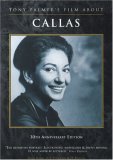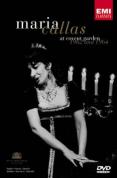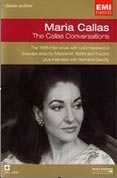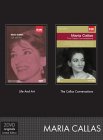 Medea (DVD + Blu-ray) | Blu Ray | (05/12/2011)
from £18.98
| Saving you £3.00 (17.66%)
| RRP
Medea (DVD + Blu-ray) | Blu Ray | (05/12/2011)
from £18.98
| Saving you £3.00 (17.66%)
| RRP A mythical tale of love, betrayal and revenge, Medea is a fascinating collision of Freudian and Marxist themes from Italy's most controversial director. Adapted from the Euripidean drama, Pasolini's disturbing vision of personal and national conflict stars operatic legend Maria Callas in the title role, offering an extraordinary performance as the high priestess Medea whose love is threatened by corrupt political ambition. A vivid and aesthetically challenging vision, Medea is a complex blend of classical mythology and contemporary social criticism.
 Pasolini Blu-ray Collection (6-disc set) | Blu Ray | (02/11/2015)
from £39.99
| Saving you £30.00 (75.02%)
| RRP
Pasolini Blu-ray Collection (6-disc set) | Blu Ray | (02/11/2015)
from £39.99
| Saving you £30.00 (75.02%)
| RRP The Pasolini collection brings together six controversial films by the legendary Italian filmmaker, including his bawdy 'Trilogy of Life' films (The Decameron, Canterbury Tales and Arabian Nights), all of which feature scores by the Academy Award winning composer Ennio Morricone. Also included is Pasolini's brutal adaptation of Euripedes' Medea, starring opera sensation Maria Callas in her only film role, the scandalous modern drama Theorem, featuring a youthful Terence Stamp, and Pasolini's final, shocking film, Salò, or the 120 Days of Sodom, based on the writings of the infamous Marquis De Sade. These intense, shocking and often extreme films challenged audiences and critics upon their original release, and they continue to do so today. Pasolini's legacy can be felt in the raw and energetic cinema of independent filmmakers such as Miike Takashi (whose Visitor Q is a re-interpretation of Theorem) and Abel Ferrara (whose latest film explores Pasolini's final days, with Willem Dafoe (The Last Temptation of Christ) playing the great director).
![The Art Of Singing - Golden Voices Of The Century [1996]](/pictures/1028779.jpg) The Art Of Singing - Golden Voices Of The Century | DVD | (01/07/2000)
from £12.58
| Saving you £5.41 (43.00%)
| RRP
The Art Of Singing - Golden Voices Of The Century | DVD | (01/07/2000)
from £12.58
| Saving you £5.41 (43.00%)
| RRP Many illustrious stars of the twentieth century are featured in sound and vision in rare footage much of it previously unavailable. The accompanying booklet includes comprehensive notes by John Steane. Includes rare footage much of it previously unseen. Based on an original BBC TV series.
![Pasolini 101 (Criterion Collection) [Blu-ray]](/pictures/1163267.jpg) Pasolini 101 (Criterion Collection) | Blu Ray | (27/06/2023)
from £N/A
| Saving you £N/A (N/A%)
| RRP
Pasolini 101 (Criterion Collection) | Blu Ray | (27/06/2023)
from £N/A
| Saving you £N/A (N/A%)
| RRP ![Maria Callas - the Eternal Maria Callas [2007]](/pictures/1075536.jpg) Maria Callas - the Eternal Maria Callas | DVD | (10/09/2007)
from £N/A
| Saving you £N/A (N/A%)
| RRP
Maria Callas - the Eternal Maria Callas | DVD | (10/09/2007)
from £N/A
| Saving you £N/A (N/A%)
| RRP Maria Callas died on 16 September 1977 aged 53.To commemorate the thirtieth anniversary of her death EMI Classics presents a newly compiled collection of her greatest moments on film, on stage and in celebrated interviews. In addition, there are contributions from some of her closest musical collaborators through whose eyes her character and the story of her life unfolds.
![Maria By Callas [DVD]](/pictures/1153981.jpg) Maria By Callas | DVD | (17/06/2019)
from £11.98
| Saving you £N/A (N/A%)
| RRP
Maria By Callas | DVD | (17/06/2019)
from £11.98
| Saving you £N/A (N/A%)
| RRP Tom Volf's MARIA BY CALLAS is the first film to tell the life story of the legendary Greek/American opera singer completely in her own words. Told through performances, TV interviews, home movies, family photographs, private letters and unpublished memoirs-nearly all of which have never been shown to the public-the film reveals the essence of an extraordinary woman who rose from humble beginnings in New York City to become a glamorous international superstar and one of the greatest artists of all time. Assembling the material for the film took director Volf four years of painstaking research.
![Maria Callas - At Covent Garden 1962 And 1964 [DVD]](/pictures/1102165.jpg) Maria Callas - At Covent Garden 1962 And 1964 | DVD | (15/07/2002)
from £N/A
| Saving you £N/A (N/A%)
| RRP
Maria Callas - At Covent Garden 1962 And 1964 | DVD | (15/07/2002)
from £N/A
| Saving you £N/A (N/A%)
| RRP Maria Calla at Convent Garden 1962 and 1964.
 Callas - 30th Anniversary Edition | DVD | (18/01/2010)
from £15.99
| Saving you £-2.00 (N/A%)
| RRP
Callas - 30th Anniversary Edition | DVD | (18/01/2010)
from £15.99
| Saving you £-2.00 (N/A%)
| RRP There are so many astonishing facts about Maria Callas... First she was born not in Greece but in Manhattan and went to school there. Second considering her colossal influence and in contrast to the pumped-up preposterous overpaid pipsqueak divas of today her actual international career was tiny - 18 years at most. Third and in spite of her reputation her cancellation record was the lowest of any great singer of her day. Fourth she rarely looked at the conductor during an opera simply because she could not see him - she was very short-sighted and often appeared (partly as a result) to be in a trance while on stage. Fifth she was betrayed by most of those intimate with her throughout her life and eventually abandoned by many of those who should have known better and who claimed to have loved her. Sixth she died almost penniless - even her grotesquely rich long-time lover Onassis whose marriage to Jackie Kennedy she only discovered by watching the 6 o'clock news had invested her money in half a cargo boat which sank. Paradoxically although she died 30 years ago her records today outsell every other recorded classical artist and single handedly keep EMI Classics afloat. Last hers was not the most beautiful voice of her time as she frequently admitted. Some days it worked; other days it just didn't. In the end those who met her in Paris in the seventies agree that she was one of the loneliest most desperate of women they had ever encountered slowly drugging herself to death. Every day thank God is one day less she told Di Stefano. A summons to tea (for half an hour at most) often lasted until the early hours with the guest or guests pleaded with not to leave. It was pathetic and horrible but it was Callas. It was always Callas and that was the secret and the magic. We witness on stage a broken woman who sings nakedly from her heart about herself and her life who acts with such incredible power and unashamed truth that we stagger back before what we know in our hearts is all of her. No artifice here; no vulgar posturings to which her absurd imitators - and there are many - aspire. Gheorghiu Battle Garrett - they cannot touch her hem. Maria - just a woman who often spoke of Callas in the third person in trouble asking begging sometimes for our understanding and our love. She deserves it because there was no greater singing actress in our time. And she was only 53 when she died.
![Callas [DVD]](/pictures/1131037.jpg) Callas | DVD | (29/07/2013)
from £9.43
| Saving you £-2.44 (N/A%)
| RRP
Callas | DVD | (29/07/2013)
from £9.43
| Saving you £-2.44 (N/A%)
| RRP Through a combination of archival footage and interviews, filmmaker Tony Palmer profiles the at once soaring and tragic life of opera legend Maria Callas, 'La Divina Assoluta'. Filmed on location in Athens, Rome, Milan, New York and London. With Franco Zeffirelli, Giovanni Battista Meneghini, Aristotle Onassis, Graziella Sciutti, Luchino Visconti, Carlo Maria Giulini, Tito Gobbi, Giuseppe Di Stefano, Arda Mandikian, Nicola Rescigno, Nadia Stancioff, Nicola Rossi Lemeni, Lord Harewood, Sir Jo...
![Callas Assoluta [Blu-ray] [2010]](/pictures/1129018.jpg) Callas Assoluta | Blu Ray | (13/10/2017)
from £27.29
| Saving you £2.70 (9.89%)
| RRP
Callas Assoluta | Blu Ray | (13/10/2017)
from £27.29
| Saving you £2.70 (9.89%)
| RRP It is a resurrection of the diva which brings back to life the period of the great Callas: The one at La Scala in the 1950s for which no footage remains. The original dresses still exist. They provide a real evocation and are the product of patient work conducted together with la Scala: photos (Erio Piccagliani), sketches of sets, the opera itself and the stage - everything is brought together to conjure up the great Callas. In this fi lm, Anna Bolena, La Sonnambula, and Don Carlos - operas o...
 Callas | DVD | (07/03/2005)
from £N/A
| Saving you £N/A (N/A%)
| RRP
Callas | DVD | (07/03/2005)
from £N/A
| Saving you £N/A (N/A%)
| RRP Callas A documentary plus bonus.
 Maria Callas - Life and Art | DVD | (18/09/2000)
from £N/A
| Saving you £N/A (N/A%)
| RRP
Maria Callas - Life and Art | DVD | (18/09/2000)
from £N/A
| Saving you £N/A (N/A%)
| RRP Long before the media's obsession with celebrity scaled its current heights, Maria Callas commanded headlines and column inches equal to any of the jet-setting elite of her time. In those terms alone, and much as opera purists might flinch at the idea, she was the Madonna of her day. But that is only one reason why her legend extends well beyond her place in the pantheon of great sopranos and so long after her death in 1977. An excellent companion to Tony Palmer's 1987 documentary La Divina, this documentary provides a well-rounded picture of an extraordinary talent who defended her art with the courage of a tigress, but whose turbulent private life gave her little except restless grief. It is crammed with concert footage and archive interviews. She was, as one of the contributors Franco Zeffirelli says, a genius of hair-raising stature and one of the greatest artists of the 20th century. But she was also a rather fragile human being. The tension between the two makes the telling of her story utterly compelling. The DVD includes chronologies of Callas' life and the many roles she played during her career. --Piers Ford
 Maria Callas at Covent Garden (Pretre, Cillario) | DVD | (01/07/2002)
from £N/A
| Saving you £N/A (N/A%)
| RRP
Maria Callas at Covent Garden (Pretre, Cillario) | DVD | (01/07/2002)
from £N/A
| Saving you £N/A (N/A%)
| RRP Now for the first time Maria Callas' legendary live performances from the Royal Opera House Covent Garden are available on DVD. These 2 memorable concerts from 1962 and 1964 celebrate her triumphant return to the Covent Garden stage. This is Maria Callas as the world remembers her. Tracklisting: Verdi: Tu che le vanita (Don Carlo) Bizet: Habanera & Seguedille (Carmen) Puccini: Tosca (Act II complete)
 Maria Callas | DVD | (01/09/2003)
from £N/A
| Saving you £N/A (N/A%)
| RRP
Maria Callas | DVD | (01/09/2003)
from £N/A
| Saving you £N/A (N/A%)
| RRP Maria Callas is without question the greatest opera legend of the 20th century. This unique DVD offers a rare opportunity to view the celebrated and candid 1968 BBC interviews she gave with Lord Harewood intimately filmed in her Paris apartment. Included in the programme is an interview with French television presenter Bernard Gavoty coupled with superb performances of arias by Massenet Bellini and Puccini (1965).
 Maria Callas - La Callas... Toujours - Paris, 1958 | DVD | (26/03/2001)
from £10.28
| Saving you £5.71 (55.54%)
| RRP
Maria Callas - La Callas... Toujours - Paris, 1958 | DVD | (26/03/2001)
from £10.28
| Saving you £5.71 (55.54%)
| RRP La Callas... Toujours is a black-and-white televised recital (Callas' Paris debut) that took place at the Paris Opera on December 19, 1958 when television was still in its infancy. We might wish that it had happened earlier, when her voice was in better condition, or later, when video recording technology was more advanced--so that, for example, we would not have to take the narrator's word that Callas is wearing a red dress. After all, visual elements were as important as the vocal dimensions in her art but her fans will welcome this warmly. The material, carefully chosen to show Callas at her best and most versatile, includes "Casta Diva" from Bellini's Norma (a Callas speciality), the haunting "Miserere" scene from Verdi's Il trovatore, and the mischievous "Una voce poco fa" from Rossini's Barber of Seville, a fine series of stylistic contrasts in which the essential point is not pure tonal beauty but characterisation and subtle expressive nuances. Others have made this music sound prettier; nobody has presented it with more impact. But the climax of this programme is its second half, a staged performance of Act II of Puccini's Tosca. This is a study in police brutality, sexual harassment and sheer violence, psychological and physical, that has some of opera's most extreme moments--including the great aria "Vissi d'arte", the murder of the villain Scarpia and the contemptuous dismissal flung at his corpse--"and all Rome trembled before him". In this segment, Callas goes mano a mano with Tito Gobbi, her only equal as a singing actor during her career. They savour this material in a virtuoso performance. --Joe McLellan, Amazon.com
![Various Composers - Passion Callas [1997]](/pictures/1080217.jpg) Various Composers - Passion Callas | DVD | (20/11/2001)
from £N/A
| Saving you £N/A (N/A%)
| RRP
Various Composers - Passion Callas | DVD | (20/11/2001)
from £N/A
| Saving you £N/A (N/A%)
| RRP Maria Callas: Passion Callas
![Callas Conversations [2003]](/pictures/1091067.jpg) Callas Conversations | DVD | (26/10/1999)
from £28.53
| Saving you £-12.54 (-78.40%)
| RRP
Callas Conversations | DVD | (26/10/1999)
from £28.53
| Saving you £-12.54 (-78.40%)
| RRP  Maria Callas - Passion | DVD | (23/01/2006)
from £N/A
| Saving you £N/A (N/A%)
| RRP
Maria Callas - Passion | DVD | (23/01/2006)
from £N/A
| Saving you £N/A (N/A%)
| RRP A feature length documentary profiling the opera singer Maria Callas. Includes archive performance footage interviews with the star and her teacher Elvira de Hidalgo recording producer Michel Glotz and film and stage producer Luchino Visconti.
![Maria Callas - La Divina - A Portrait [1987]](/pictures/1032837.jpg) Maria Callas - La Divina - A Portrait | DVD | (05/04/2000)
from £26.98
| Saving you £-6.99 (-35.00%)
| RRP
Maria Callas - La Divina - A Portrait | DVD | (05/04/2000)
from £26.98
| Saving you £-6.99 (-35.00%)
| RRP It is almost a quarter of a century since Maria Callas died. But the passing years have done little to diminish interest in this most iconic of divas. The debate surrounding the real quality of that voice continues to be fanned by her devotees and detractors, intermittently reaching fever pitch with the arrival of another biography or the commercial release of a newly discovered live recording. Tony Palmer's 1987 film portrait, now available on DVD, towers over the bulk of contributions to the Callas industry because it manages to be both passionate about its subject and objective about the forces that shaped a great musical talent and then left it in ruins. Lengthy interviews with colleagues and confidants embrace both Callas' undoubted theatrical genius and the emotional traumas that propelled her stumbling private life. The scene is set from the moment this documentary's producer John Ardoin, himself a Callas biographer, declares the story of Callas the woman to be one of the great tragedies of our time. From that point, the film forges potent links between the evolution of the diva's artistry through her great performances--Tosca, in particular--and the defiant soul captured in a considerable archive of media encounters that range from the intense and contemptuous to the coquettish. This is 90 essential minutes for anyone interested in the Callas legend. Her story will never be better told. --Piers Ford
 Maria Callas - Life And Art / Maria Callas | DVD | (01/11/2004)
from £90.97
| Saving you £-67.98 (-295.70%)
| RRP
Maria Callas - Life And Art / Maria Callas | DVD | (01/11/2004)
from £90.97
| Saving you £-67.98 (-295.70%)
| RRP Life and ArtThis Documentary gives a new insight into the character of Maria Callas. It celebrates her singing and dramatic skills explores the woman behind the public persona and the conflict between her personal aims and her ambitions. Featuring extracts from: Puccini - Vissi d'arte from Tosca; Bellini - Casta Diva from Norma: Rossi - Una Voce Poco Fa from II Barbiere di Siviglia; Bizet - Habanera from Carmen; Mascagni - Cavalleria Rusticana due Guiseppe di Stefano; Donizetti - L'elisir d'amore duet with Guiseppe di Stefano.The Callas ConversationsThis unique DVD offers a rare opportunity to view the celebrated and candid 1968 BBC interviews she gave with Lord Harewood intimately filmed in her Paris apartment. Included in the programme is an interview with French television presenter Bernard Gavoty coupled with superb performances of arias by Massenet Bellini and Puccini (1965)

Please wait. Loading...
This site uses cookies.
More details in our privacy policy